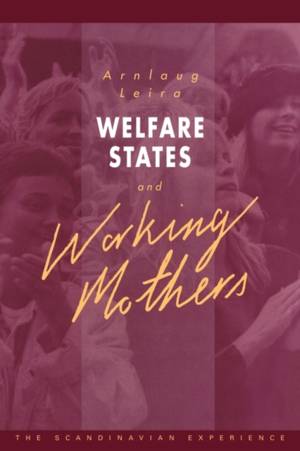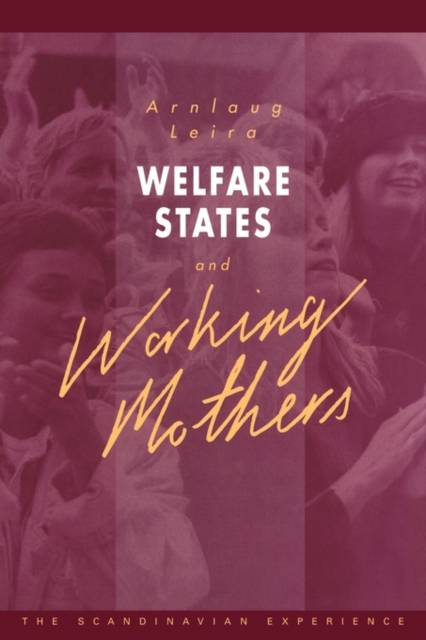
- Afhalen na 1 uur in een winkel met voorraad
- Gratis thuislevering in België vanaf € 30
- Ruim aanbod met 7 miljoen producten
- Afhalen na 1 uur in een winkel met voorraad
- Gratis thuislevering in België vanaf € 30
- Ruim aanbod met 7 miljoen producten
Zoeken
€ 69,45
+ 138 punten
Uitvoering
Omschrijving
What is the relationship between women and the welfare state? How do women reconcile paid work and family responsibilities? These questions are of central political concern to nearly all Western industrialised countries and have provoked considerable scholarly disagreement. In this timely book, Dr Arnlaug Leira presents both a theoretical and an empirical analysis of the relationship between women's lives, employment practices and childcare provision. Focusing upon the social construction of motherhood in Scandinavia, Arnlaug Leira shows how, contrary to common perceptions, there is no shared model of welfare policies and women's work. Instead, the position in Norway is significantly different from that in Sweden and Denmark. The author then presents an ethnographic analysis of the lives of working mothers in Norway. She details the complexity of the strategies by which women cope and support one another in combined earning and childcare in a situation where state provision is limited. Welfare States and Working Mothers will be widely read by students and specialists of sociology, social policy and administration, political science and women's studies. It will also be of interest to policy makers, social workers, teachers and nursery-school workers.
Specificaties
Betrokkenen
- Auteur(s):
- Uitgeverij:
Inhoud
- Aantal bladzijden:
- 216
- Taal:
- Engels
Eigenschappen
- Productcode (EAN):
- 9780521125093
- Verschijningsdatum:
- 10/12/2009
- Uitvoering:
- Paperback
- Formaat:
- Trade paperback (VS)
- Afmetingen:
- 152 mm x 229 mm
- Gewicht:
- 322 g

Alleen bij Standaard Boekhandel
+ 138 punten op je klantenkaart van Standaard Boekhandel
Beoordelingen
We publiceren alleen reviews die voldoen aan de voorwaarden voor reviews. Bekijk onze voorwaarden voor reviews.











